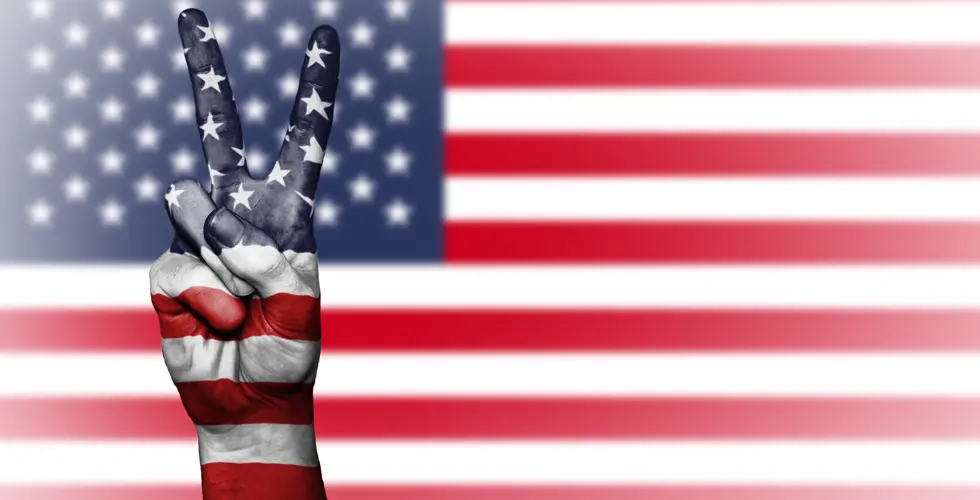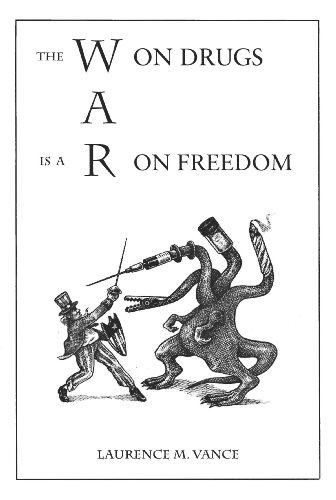
Introduction to Laurence M. Vance, The Free Society (Vance Publications, 2018), xii + 468 pgs., paperback, $19.95.
Most Americans think they live in a free society. They think that because they can find fifty varieties of salad dressing at the grocery store, choose from among a hundred types of wine at the liquor store, select a television channel from over 1,000 choices, download any movie or song they want from the Internet, and sit at home for hours playing the latest video game that they live in a free society. They are oblivious to the extent of government encroachment on their freedoms. They are complacent when it comes to government edicts. And they are ignorant as to what a free society really means.
Oh sure, Americans are free compared with the people of North Korea, Sudan, Myanmar, Yemen, Saudi Arabia, and Venezuela, but there are 190 other countries in the world. The truth is, Americans live in a relatively free society, not an absolutely free society. The American people are relatively free when compared with people in Thailand, Egypt, the Republic of the Congo, Turkmenistan, Cuba, Nepal, Vietnam, and Pakistan.
And on top of all that, Americans live in a nanny state. We have a government full of politicians, bureaucrats, and regulators, and a society full of statists, authoritarians, and busybodies, who all want to use the force of government to impose their values, hinder personal freedom, remake society in their own image, destroy personal and financial privacy, restrict economic activity, compel people to associate with people they may not want to associate with, define and enforce morality, tell you how to live your life, and limit the size of soft drinks you can purchase at a convenience store.
I much prefer a genuinely free society, as I make clear in the 127 essays in this book.
 The Free Society Laurence M. VanceBuy New $19.95(as of 01:25 EDT – Details)
The Free Society Laurence M. VanceBuy New $19.95(as of 01:25 EDT – Details)
The essays were all written as articles or columns during the years 2005–2017. With just two exceptions, they were all originally written for either LewRockwell.com or the Future of Freedom Foundation. The essays are arranged in chronological order within the sections of each chapter (explained below), and each one can be read independently. They are reprinted verbatim, with the exception of the correction of any typographical errors. Because most of the essays initially appeared online, there will occasionally be found references to websites that originally contained links. There is some overlap between the essays in each chapter, between chapters 1 through 3, and between chapters 4 through 7. Although some of the figures given and events described in the essays are dated, the defense of a free society is timeless.
Chapter one, “Libertarianism: Theory,” begins with three essays that introduce libertarianism followed by eight essays that supplement and amplify the first three.
Chapter two, “Libertarianism: Practice,” begins with five general essays on the libertarian perspective on a broad range of issues, continues with six specific essays on the libertarian perspective on certain issues, and concludes with three essays on libertarianism and education and two on libertarianism and taxes.
Chapter three, “Libertarianism vs. Liberalism/Conservatism,” begins with two general essays on the relationship between libertarianism and liberalism/conservatism followed by six specific essays on the relationship between libertarianism and conservatism/Republicans.
Chapter four, “Discrimination and Free Association,” contains sixteen essays on the libertarian perspective on discrimination (some general and some specific) and concludes with two essays on the related topic of free association.
 The War on Drugs Is a … Laurence M. Vance Best Price: $8.95 Buy New $5.95 (as of 07:15 EDT – Details)
The War on Drugs Is a … Laurence M. Vance Best Price: $8.95 Buy New $5.95 (as of 07:15 EDT – Details)
Chapter five, “Victimless Crimes,” begins with two essays on victimless crimes in general followed by specific essays regarding prostitution, pornography, gambling, adultery, ticket scalping, and drugs. Although I have written scores of essays on the evils of the government’s war on drugs, some of which are collected in my book The War on Drugs Is a War on Freedom, I have selected just one, “The Libertarian Sticking Point,” for inclusion in this collection of essays because of how it directly relates to libertarianism.
Chapter six, “The Free Market,” begins with nine essays relating to market prices (including the price of labor) and concludes with thirteen essays in defense of the free market and in opposition to government intervention and regulation. My essays on free trade that one would expect to find here are collected in my small book Free Trade or Protectionism?
Chapter seven, “The Free Society,” begins with four essays relating to alcohol, continues with three on tobacco, and concludes with a wide variety of essays on the nature of a free society.
The mention of any book in the essays and the inclusion of any book in the above list of books for further reading should not be taken as a blanket endorsement of everything contained in the book or anything else written by the author.
This article originally appeared on LewRockwell.com.
Articles posted on LCI represent a broad range of views from authors who identify as both Christian and libertarian. Of course, not everyone will agree with every article, and not every article represents an official position from LCI. Please direct any inquiries regarding the specifics of the article to the author.
Did you read this in a non-English version? We would be grateful for your feedback on our auto-translation software.
), //libertarianchristians.com/wp-content/plugins/smartquizbuilder/includes/images/template6-latest.jpeg))

), https://libertarianchristians.com/wp-content/plugins/smartquizbuilder/includes/images/template6-latest.jpeg))








































), https://libertarianchristians.com/wp-content/plugins/smartquizbuilder/includes/images/template6-latest.jpeg))
), https://libertarianchristians.com/wp-content/plugins/smartquizbuilder/includes/images/template6-latest.jpeg))
), https://libertarianchristians.com/wp-content/plugins/smartquizbuilder/includes/images/template6-latest.jpeg))





*by signing up, you also agree to get weekly updates to our newsletter
Sign up and receive updates any day we publish a new article or podcast episode!